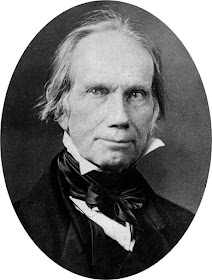There was one night at the dinner table when my daughter Laney became stressed about a bug on the table. Instinctively, I grabbed the bug, and flung it onto the floor. "There, problem solved," I said.
Callie said, "Dad, was that wasn't very nice. You hurt its feelings."
I said, "It's the lowest form of life. It has no idea where it is now any more than when it was on the table."
Callie said, "Dad? You have to respect animals."
I said, "As a Christian, I respect all of God's creatures. But when they're creepy critters crawling on the dinner table, they have to get out of the way."
Here, my precocious 6-year-old, Myles, said, "What's the difference between animals and humans."
My wife said, "Nothing. We are all animals."
I interjected, "There is a difference between animals and humans."
My wife said, "No there isn't."
Not wanting to start an argument at the table, as my wife tends to have political views that are the antithesis of mine, I ceased to say any more on the subject. Sometimes, however, in moments like this, I wish I had the nerve to speak. After all, if I don't, then my kids might develop my wife's liberal views.
If I had spoken at this time, here is what I would have said.
There is a difference between humans and animals. God gave humans the ability to think, the ability to have a conscience, the ability to be aware of their surroundings. we are capable of making conscious decisions. This is how our ancestors were able to survive in a world that constantly changed over the years.
Animals, on the contrary, make decisions by instinct. And I know dog lovers and cat lovers and animal lovers in general will hate me saying this, but it's true. A dog doesn't even know it's a dog. A cat doesn't know it's a cat. An alligator doesn't know it's an alligator.
If I was talking to an adult, such as my wife, there's another example I could have used. Back in June of 2016 an alligator dragged a 2-year-old into the water. The child died. A few days later I was watching CNN and an anchor lady said, "What was it thinking?'"
I couldn't help but to roll my eyes.
It was Brooke Baldwin. She was talking to an expert. She said, "There were signs: “No swimming.” You know, I don’t know if there were no wildlife signs. I realize that, when you come to Florida, Florida has a lot of gators. What do you think…? I mean, if the child was walking around the periphery of this lagoon, it was nighttime, what would the gator be thinking?
GATORS DON"T THINK.
They are dumb animals. They have little brains. When it's time to eat, the move until they find some meat, they eat the meat, and they go back to the shade. That's what alligators do. They can't tell the difference between a rabbit and a human. All they see is meat. They see dinner.
The guests was Tim Williams, Gatorland alligator rescue expert. He said, "Splashing is a big attractive to these animals. They could sound like some animal struggling in the water. They come over there to see what it is; they think they have a chance to take that animal, they will. So there’s a lot of things that play in on this."
It was a common sense answer to a dumb question. Alligators don't think. Dogs don't think. Cats don't think. I know animal lovers don't want to hear that, but it's true. Animals don't weight the odds. animals don't think, "Gee, is that a human or a rabbit?" That doesn't happen.
That alligator didn't stop to think, "Gee, that boy looks so cute. I better just keep swimming." No! If that happened, that animal might starve. It might miss out on an opportunity to swallow something to end its hunger and keep it alive.
If we humanize animals like this.. we can't humanize animals like that. If you start to think of animals like humans, you get into the slippery slope of confounding instinct from conscious thought. And you get stupid questions like Baldwin asked.
Animals are instinctual. Humans make conscious decisions.
That's the difference between humans and animals.





